What is Solar Smart Lighting System?
A Solar Smart Lighting System is an advanced outdoor lighting solution that combines solar power technology with intelligent control features. It is designed to provide energy-efficient, sustainable, and remotely manageable lighting—typically used for streets, parks, campuses, rural roads, and smart city applications.
Smart Solar Light System is a new urban lighting solution that integrates solar power supply, LED lighting, intelligent control and wireless communication.
It has the core characteristics of "green and environmental protection + remote intelligent control + energy saving and high efficiency" and is widely used in roads, parks, communities, scenic spots, villages and other scenarios.
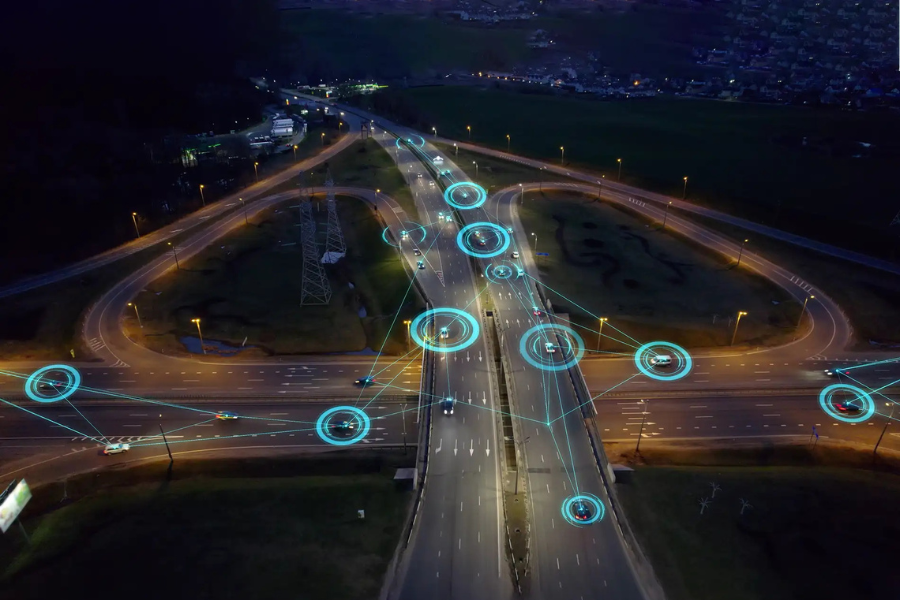
Solar Smart Lighting System Operation Interface
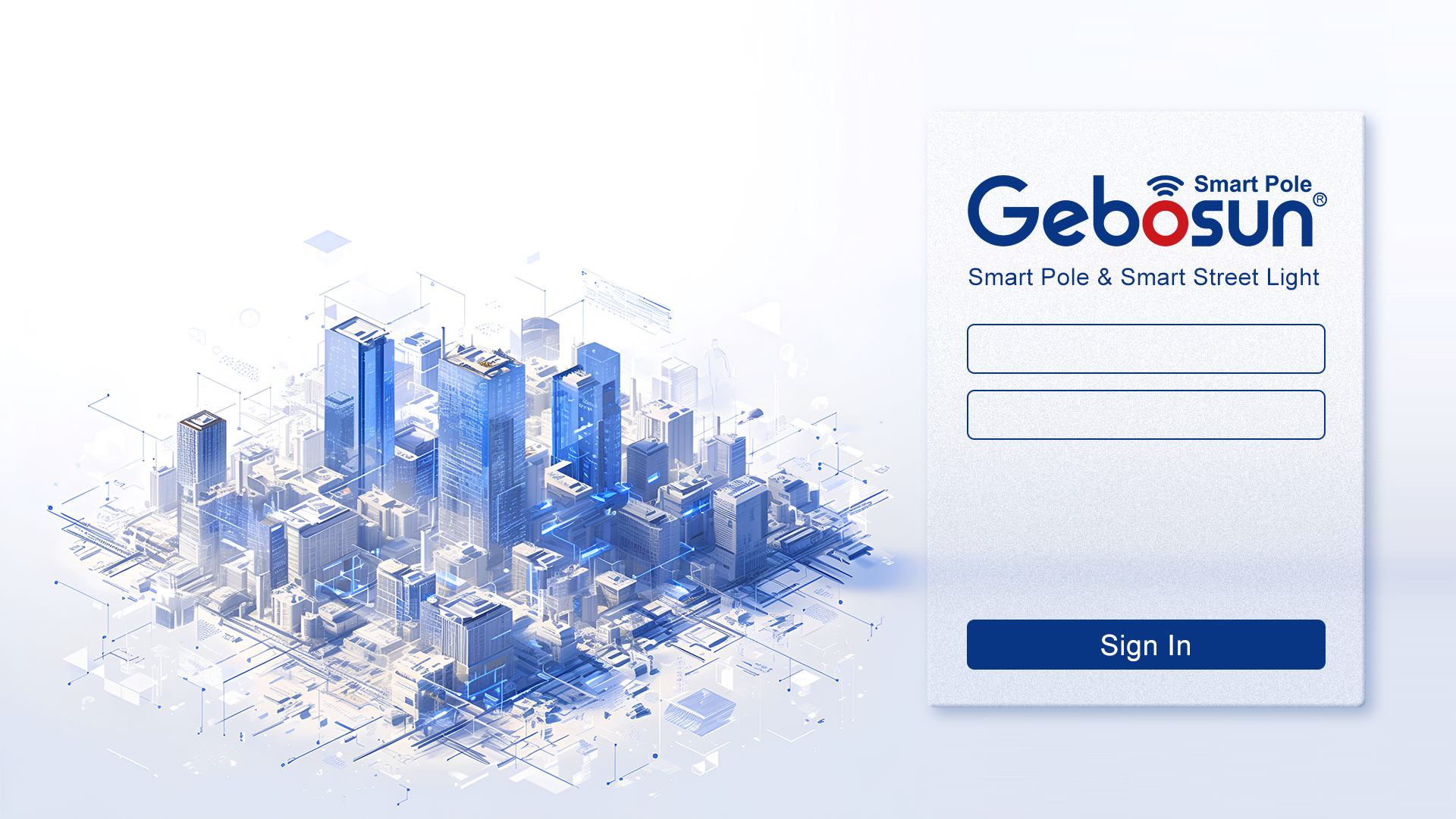
Solar Smart Lighting System Login Page
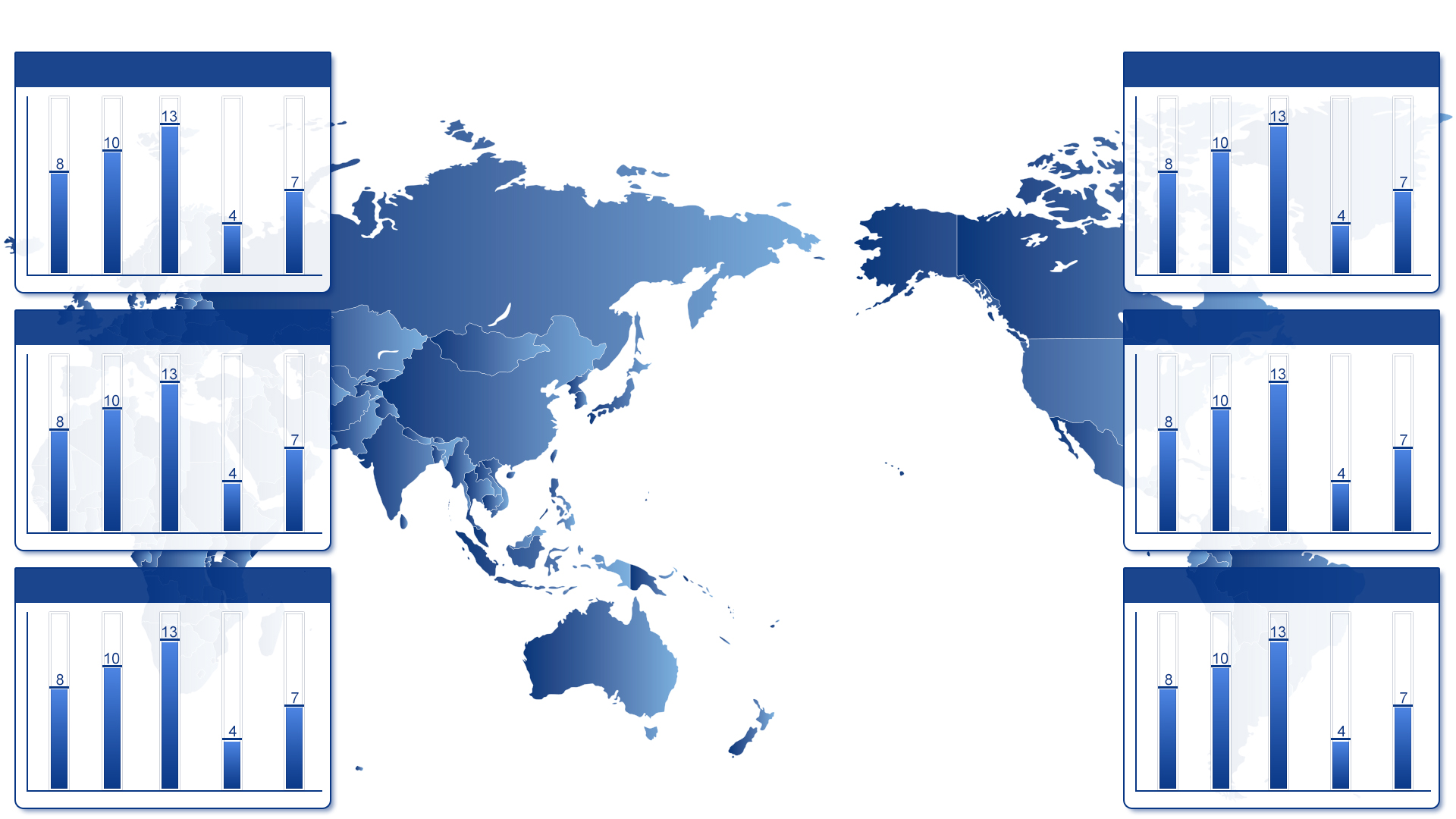
Solar Smart Lighting System Data Screen
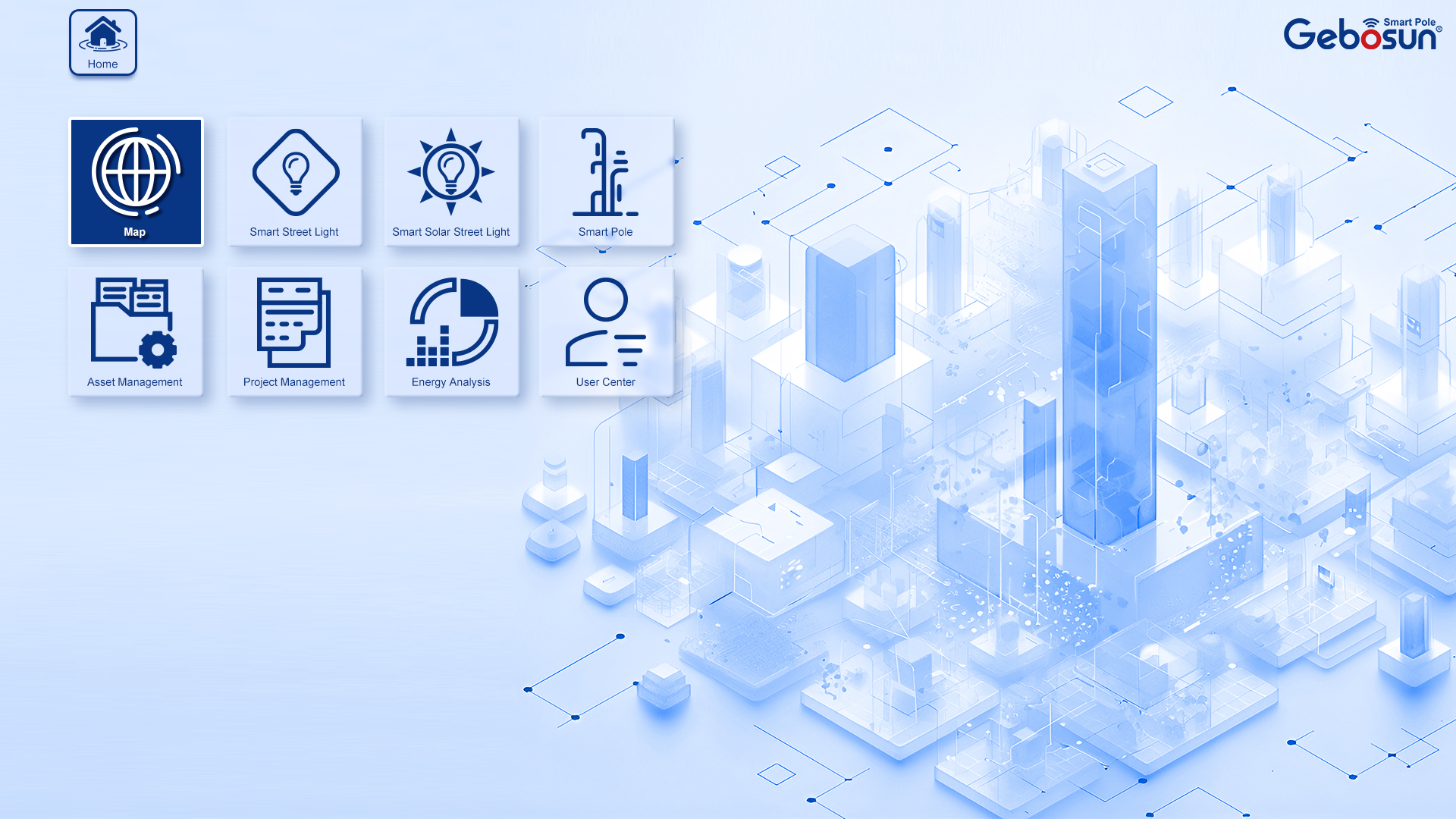
Home ( Solar Smart Lighting System)
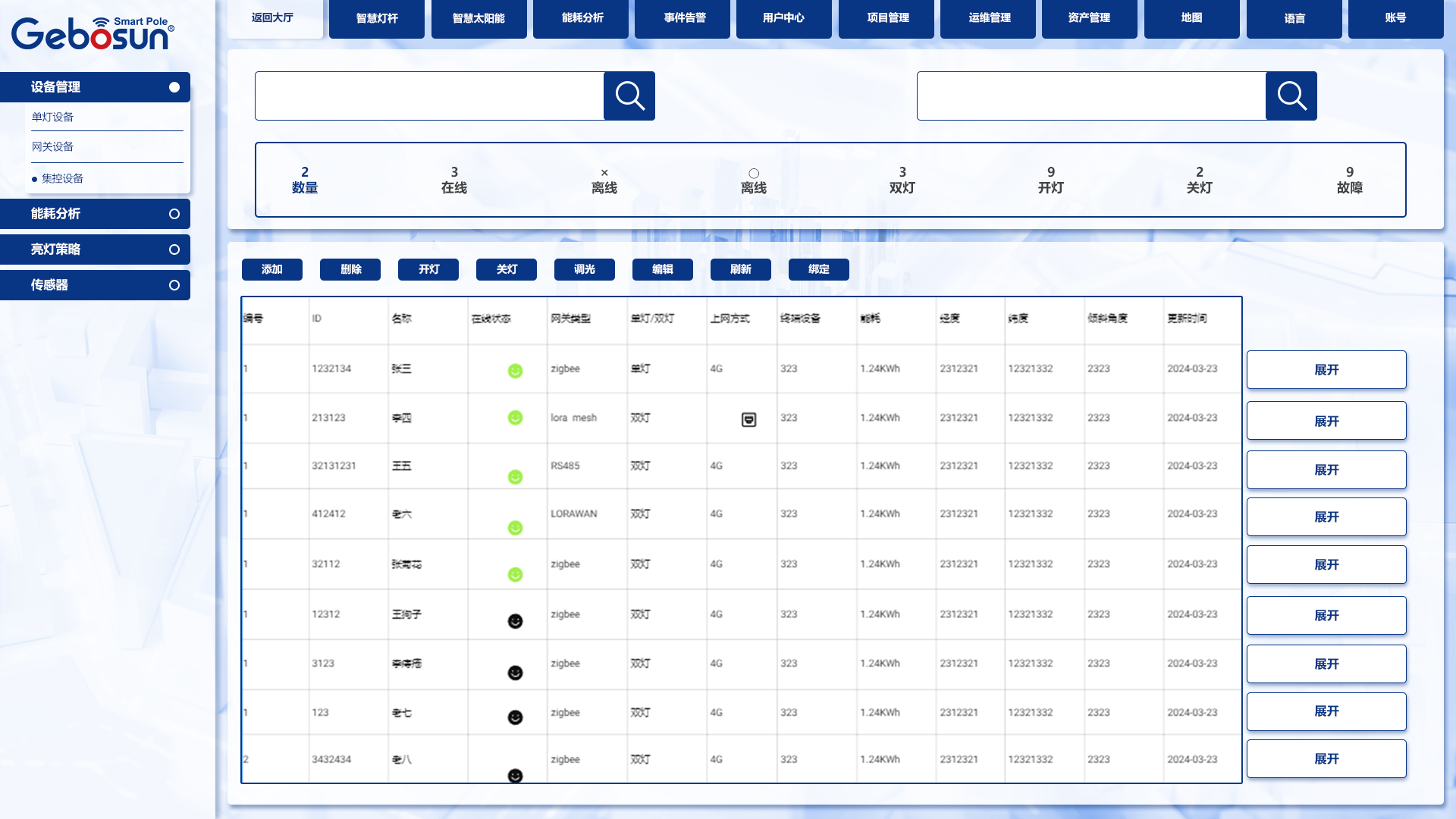
Solar Smart Lighting System Management Page
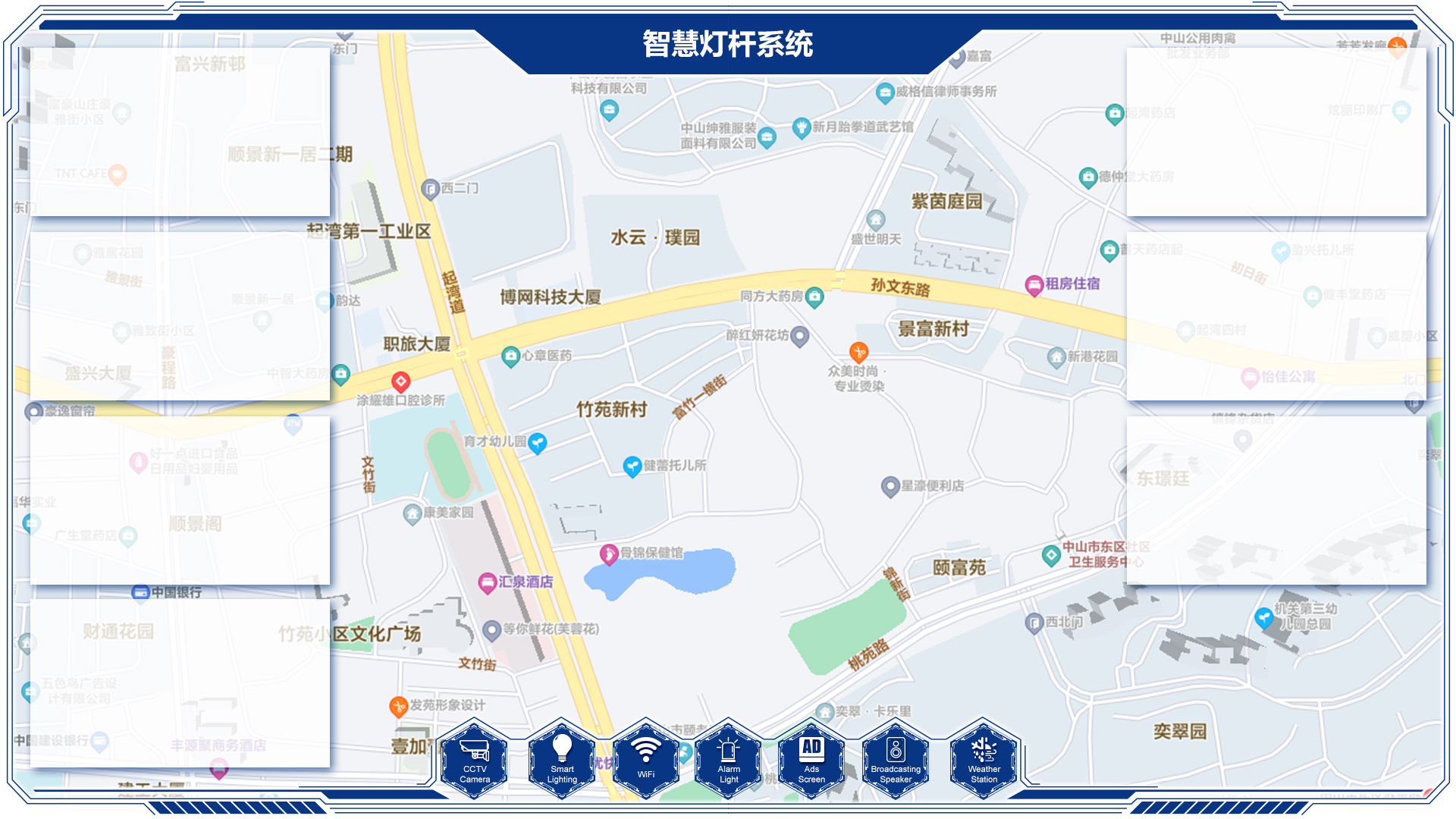
Solar Smart Lighting System Smart Light Pole Page
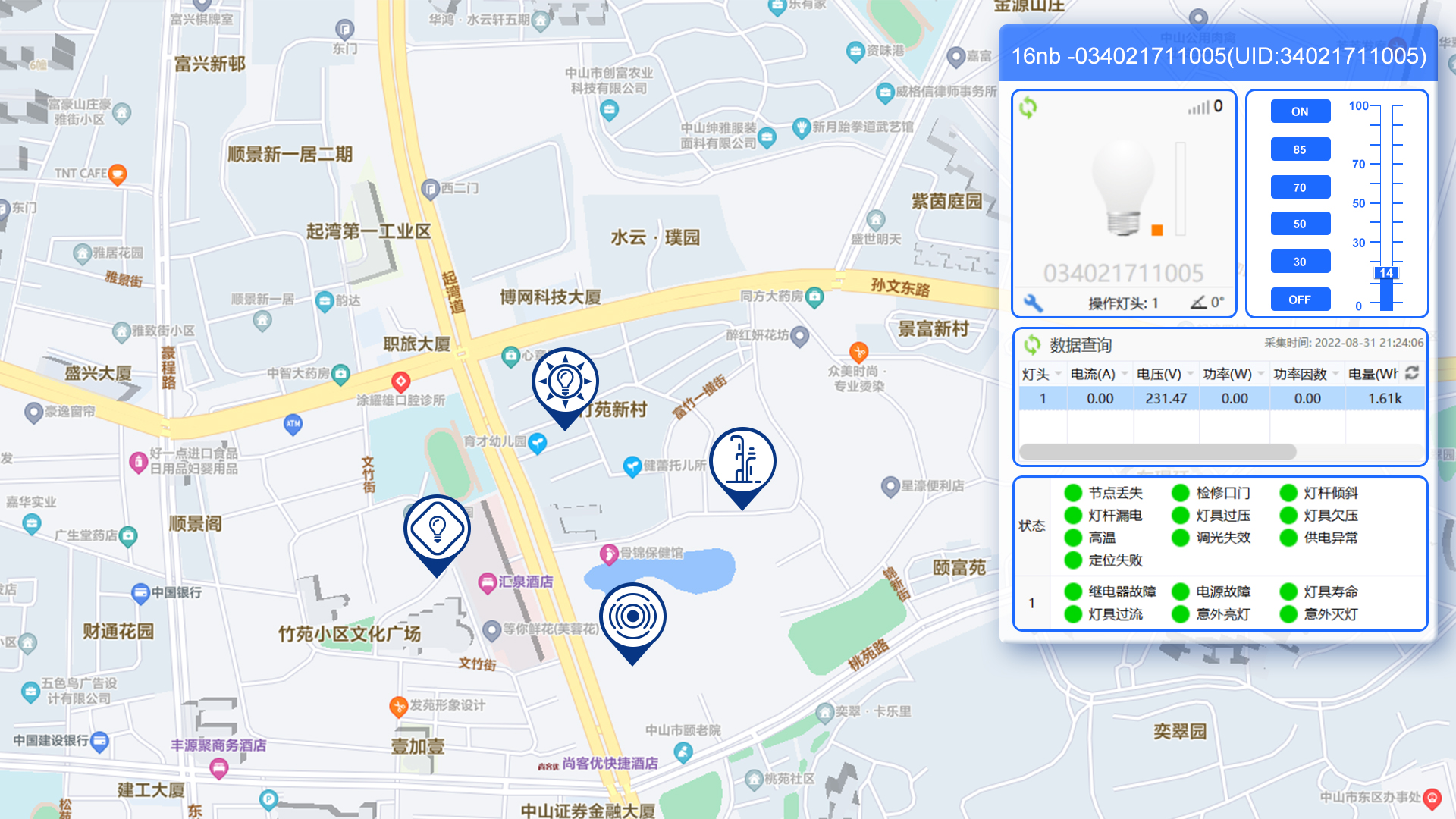
Solar Smart Lighting System Map
Why Choose Smart Solar Lighting
Green and Energy Saving
Zero carbon emissions, zero electricity costs Independent operation, reducing dependence on the power grid
Highly intelligent
Realize remote light on/off, dimming, light control + time control, Fault alarm and maintenance prompts to reduce operation and maintenance costs
Flexible deployment
No wiring required, adaptable to various roads and environments, Supports single-lamp control, centralized management, flexible networking
Cost advantage
One-time investment, long-term use, Save wiring and maintenance costs
Smart street light control system
It consists of a single light controller, a smart gateway or a centralized controller.
gebosun smart street light single lamp controls one or two light switches or dimming control, measures the energy consumption of lamps, and has optional GPS positioning, lamp pole tilt, photosensor and RTC clock functions.
It supports remote command control and operating status fault detection, and energy consumption metering data reporting function.
Smart Street Light System Components:
Solar panels, lithium battery packs, high-brightness LED lamp heads, MPPT controllers, wireless communication modules, single-lamp controllers/centralized controllers, smart lighting management platforms
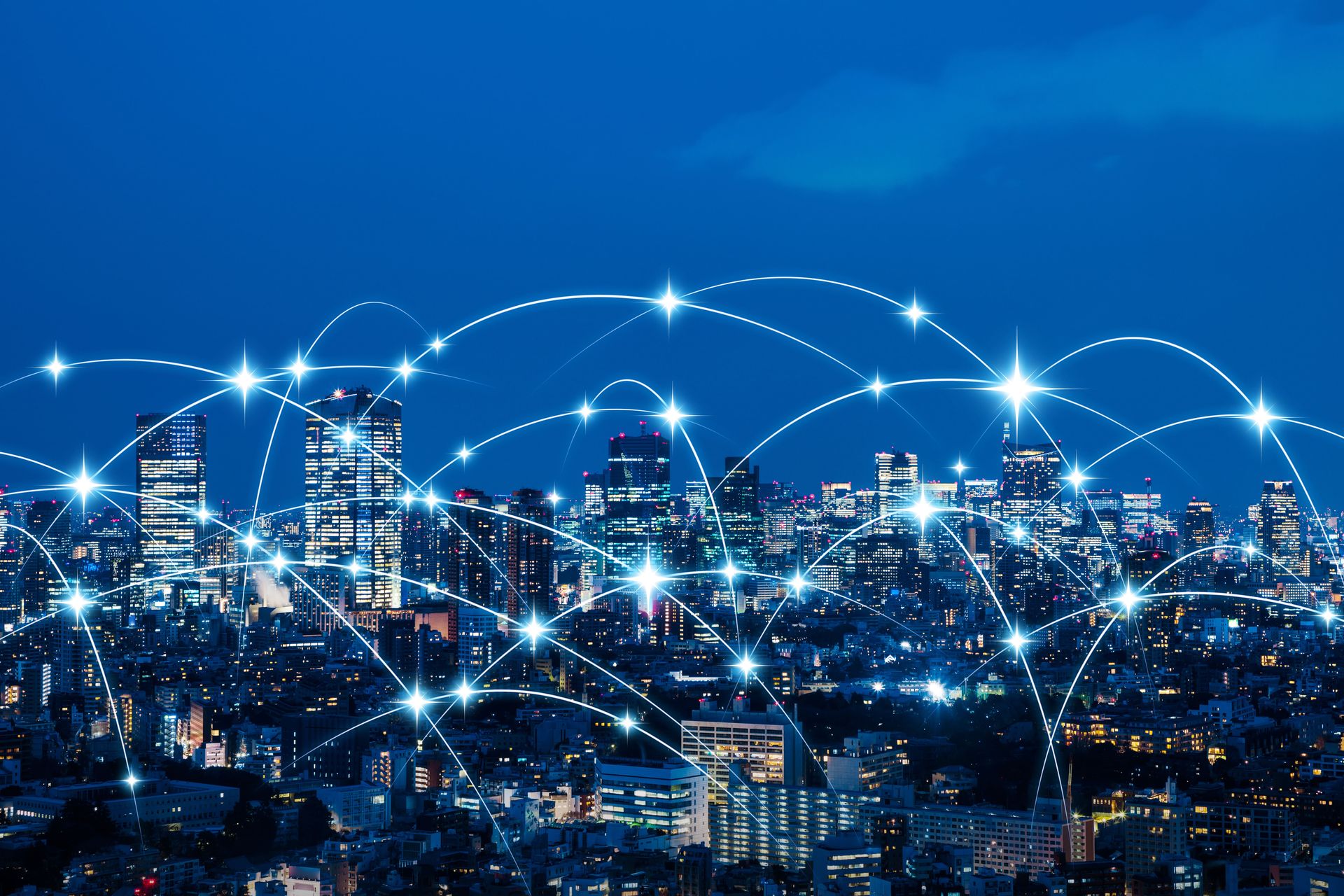
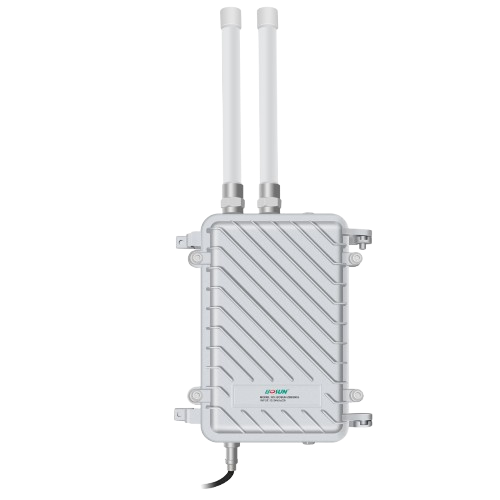
Gateway
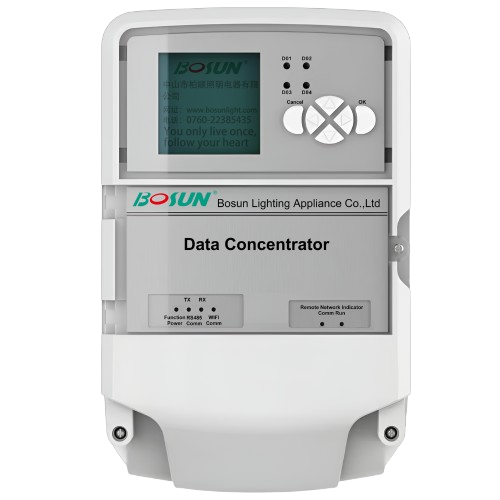
Concentrater
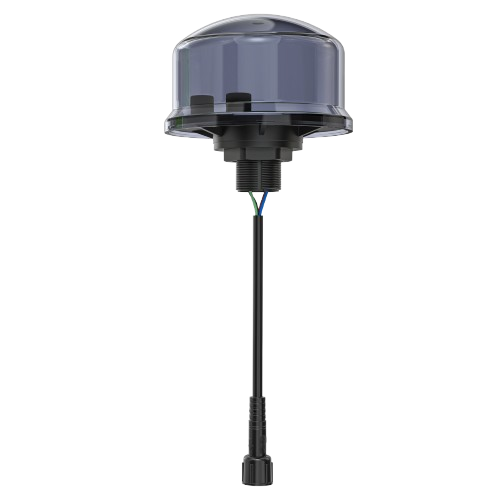
Zhaga
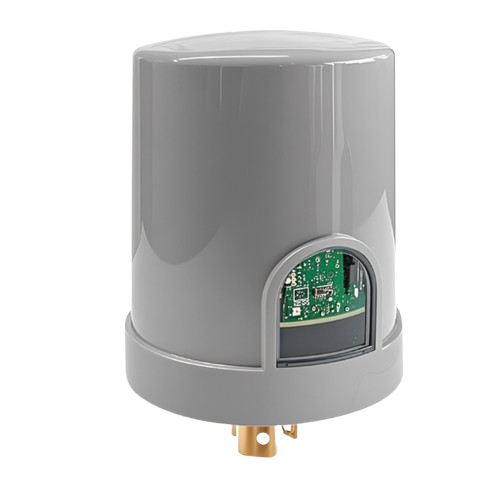
Nema
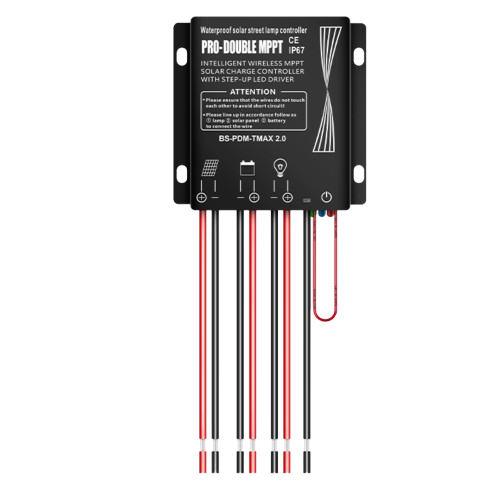
Solar Charge Controller
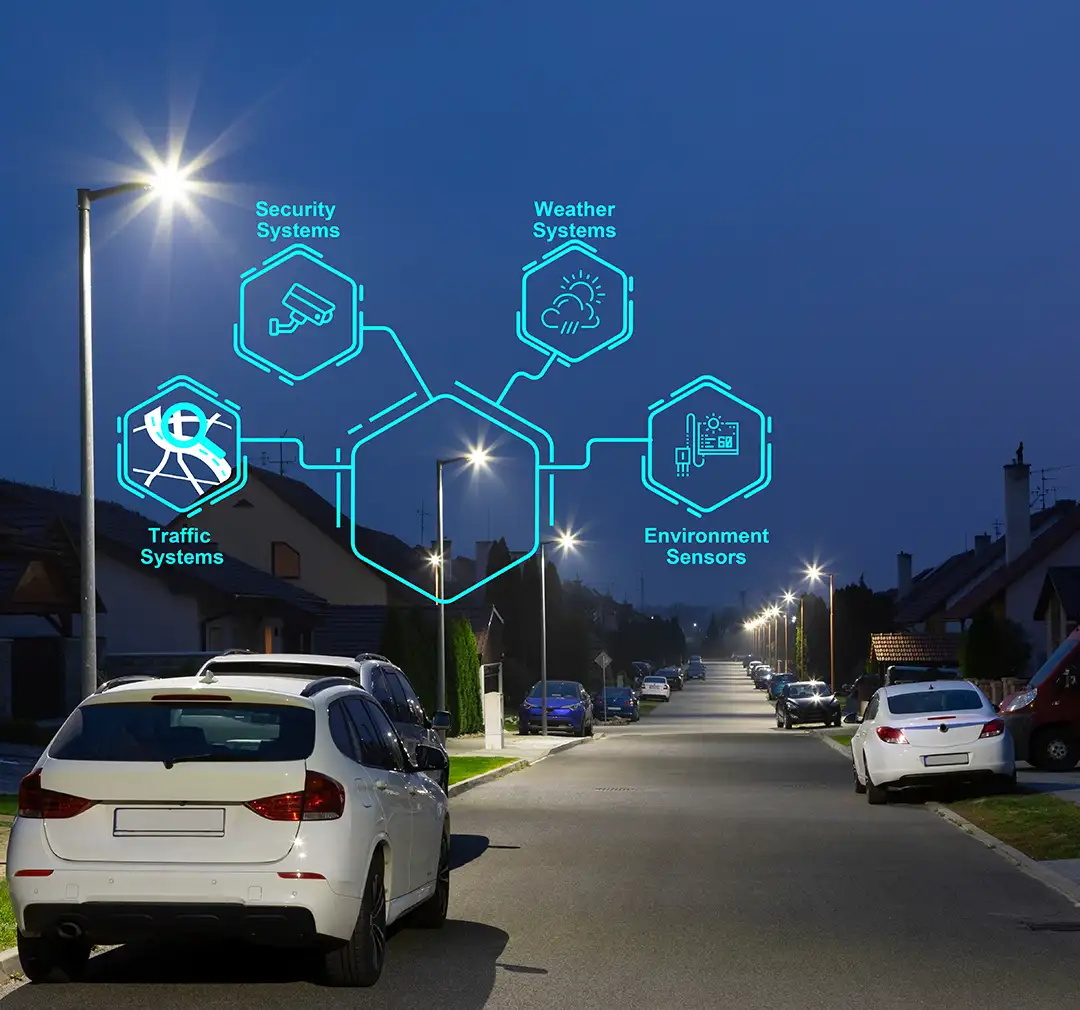
Gebosun SSLS (Smart Street Light System) intelligent street light system can achieve the following functions:
A. Remote monitoring: Real-time monitoring of the working status of street lights, including parameters such as brightness, current, and voltage.
B. Intelligent dimming: Adjust the brightness of street lights according to ambient lighting conditions to achieve energy saving (only NEMA
and ZHAGA models) C. Timing control: The on and off time of street lights can be set, and different lighting strategies can be used according to different scenarios to improve management efficiency.
D. Energy management: Statistics and analysis of the energy consumption of street lights to optimize energy use, E. Communication function: Support wireless communication to achieve remote data transmission and control.
F. Data analysis: Collect and analyze street light operation data to provide a basis for management decisions.
G. Fault alarm: Timely detect street light faults and issue alarms to facilitate maintenance personnel to perform maintenance
H. Map positioning: Display the location information of street lights on the map to facilitate search, maintenance and management
I. Equipment management: Centralized management of street light equipment, including equipment registration, maintenance records, asset management, etc.
A Solar Smart Lighting System combines solar power with intelligent control technologies like remote monitoring, automatic dimming, and data analytics to provide efficient, autonomous street lighting. It's especially useful in smart city projects and off-grid locations.
During the day, the solar panel collects sunlight and converts it into electricity, which is stored in a battery. At night, the battery powers high-efficiency LED lamps. A smart controller manages brightness, scheduling, and diagnostics via wireless communication.
-
Solar Panel
-
Lithium Battery
-
MPPT Controller
-
LED Lamp
-
Smart Controller (LoRa, 4G, NB-IoT, PLC, etc.)
-
Pole and mounting accessories
Yes, the system is designed to operate entirely off-grid. Some versions also offer hybrid options, combining solar and AC grid power for backup.
Gebosun systems support:
LoRa-Mesh
4G/LTE
NB-IoT
PLC (Power Line Communication)
RS485 (for tunnels or short-distance control)
Each protocol suits different environments and infrastructure levels.
Yes. Gebosun offers modular solutions, meaning you can choose from different controllers, communication types, pole heights, LED wattages, and additional features like CCTV, EV charging, or environmental sensors.
The initial investment includes not just the luminaires but also the advanced sensors, connectivity modules, and the management platform. A custom-tailored approach is often required, as off-the-shelf solutions may not fit the unique needs of each location.
For starters, smart public lights are aware of their surroundings and adjust the light based on data they collect from sensors. By being able to “understand” real-time data, intelligent street lighting can, for example, turn itself on and off based on ambient light conditions.

